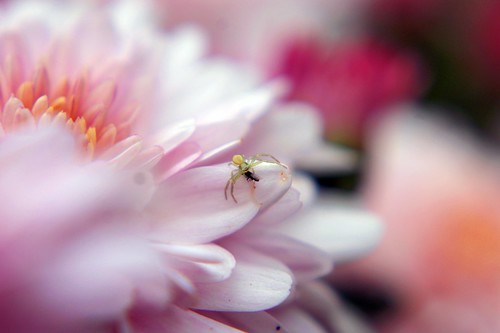By Sindya B. Bhanoo, The New York Times, December 26, 2011
Tiny spiders have
brains so large that they fill up their body cavities and extend into their
legs, a new study reports.
Researchers
measured the central nervous systems of nine species of spiders in a range of
sizes. While the smallest had smaller brains in absolute terms, relatively
speaking their brains were enormous.
“The basic trend was that the smaller the spider, the relatively
larger its brain is,” said William Eberhard, a biologist at the Smithsonian
Tropical Research Institute in Costa Rica and an author of the study, which appears in the journal
Arthropod Structure & Development.
In the smallest spiders, Dr. Eberhard and his colleagues found, the
central nervous systems filled nearly 80 percent of the cephalothorax, or body
cavity, including 25 percent of the legs.
“The brain tissue of the nervous tissue is metabolically expensive,”
he said. “These little spiders are paying a very large price to keep these
brains functioning.”
At times, that price includes a deformed body cavity bulging with
brain matter, which may in turn compromise the size of the digestive system,
Dr. Eberhard said.
The researchers focused on tropical spiders in Panama and Costa Rica,
of which there are a wide variety that range in size. The large species in the
study weighed 400,000 times as much as the smallest.
Since the smallest spiders make a major investment in brain size, they
are able to build the same kinds of complex webs as larger spiders, Dr.
Eberhard said.
“The smallest spiders are behaviorally just as competent as the
largest spiders,” he said.

No comments:
Post a Comment